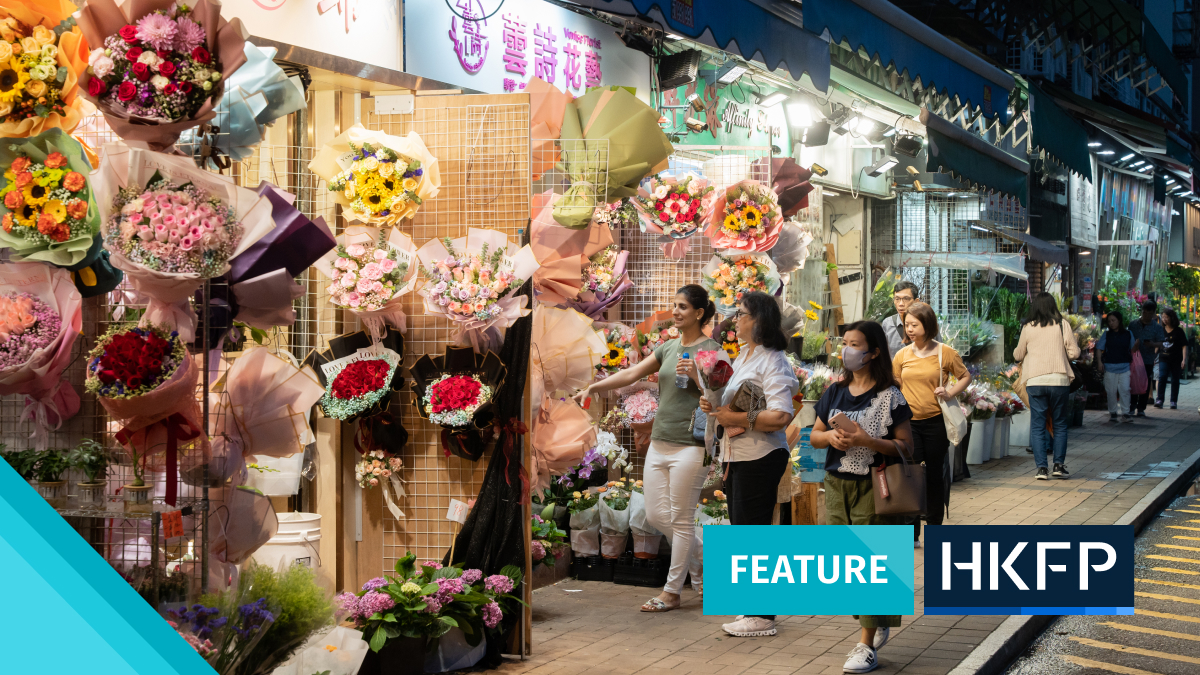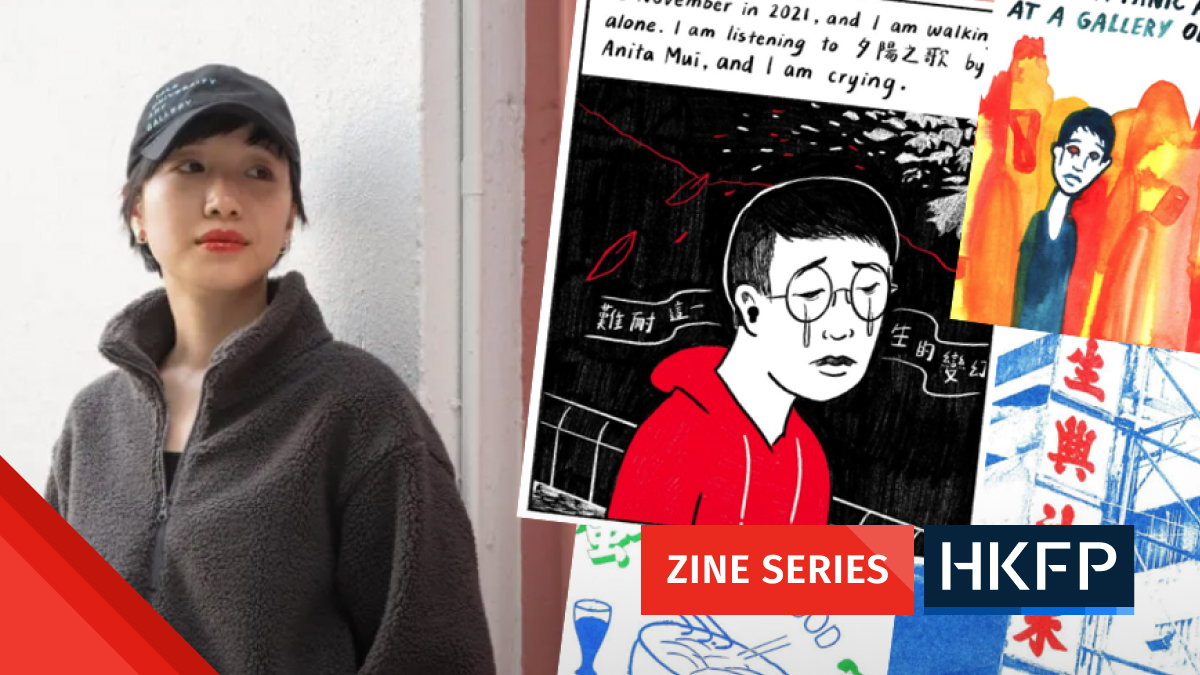In an upstairs unit of a Hong Kong industrial building, all eyes were fixed on a steaming cup of coffee held in a student’s trembling hand. Aided by an instructor, the student tilted a pitcher of freshly frothed milk, its foamy contents creating a tulip. Oohs and aahs filled the room.

By the end of the two-hour session on an August evening, the students had learnt the basics of latte art. But this was no ordinary class. None of the eight participants were self-proclaimed coffee connoisseurs or aspiring baristas, and only one said they had ever operated a coffee machine.
The group – of four males and four females – were on a different mission: to meet their potential love interest.
Across the city, a nascent industry is helping young Hongkongers find love through interest classes, workshops and more. Feijai Sketches, founded in 2016 as an art studio, has been offering such activities for around two years, making them an early entrant. A search on Instagram of Chinese hashtags such as “single [in] Hong Kong,” “singles’ matchmaking” and “exit the pool” – a local slang term meaning to leave the singles’ pool – brings up dozens of pages organising these matchmaking events. Most were created within the last year.
These businesses offer activities such as art workshops and board game nights with a romantic slant. When participants sign up online, they are often asked to introduce themselves and describe what they are looking for in a potential partner so the organisers can group like-minded people together.

Raymond, the founder of Feijai Sketches and a surveyor by day, said the matchmaking activities have seen over 3,000 participants, with around 30 to 40 couples produced.
“Back when I was teaching normal art classes, my students, who were mostly female, said that they had a hard time meeting guys,” said Raymond in Cantonese, declining to share his last name as his employer was unaware of his side business. “I realised there was something I could do.”
The classes at Feijai Sketches are for people who are heterosexual, as were almost all the activities that HKFP looked into on Instagram. Raymond said he had once put out an Instagram story asking if there was interest in matchmaking classes for gay people, but that there did not seem to be much demand.
‘Looking for a long-term relationship’
The commercialisation of love is nothing new in Hong Kong, where advertisements for large matchmaking companies are commonly seen in MTR trains or on minibuses.

Compared to traditional speed-dating events, these matchmaking activities are conducted in smaller groups, often centred around an activity, and promise more personalisation.
To sign up for Feijai Sketches’ classes, participants fill in a Google form detailing their age, horoscope and line of work. They are asked to describe their personality and expected attributes of a partner, and select from a range of activities including oil painting, making bagels and DIY perfume.
The studio then matches students accordingly and notifies them when there is an opening. The wait can be anywhere from a day – if somebody drops out at the last minute and a spot opens up – to three months, said Raymond.
Each class begins with introductions and ends with students taking a group photo and exchanging Instagram handles. Throughout it, a host ensures that the session is run smoothly and fills awkward silences to keep conversations going.
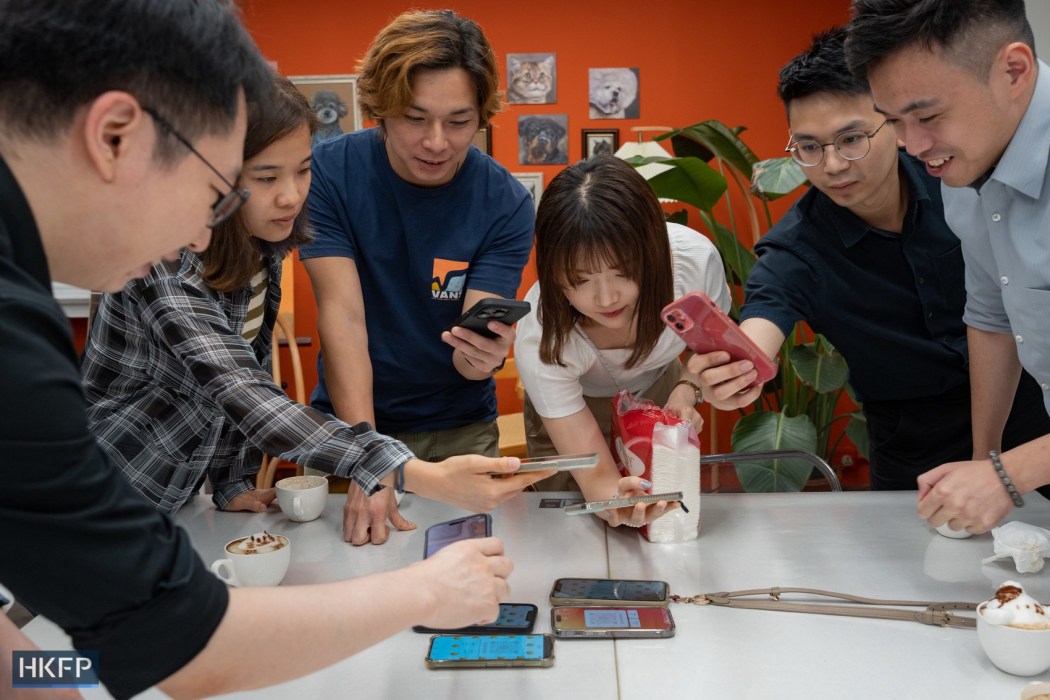
Another studio, called Daydream, began offering classes that combine handicrafts and matchmaking last December. The owner, part-time yoga teacher Carmen Cheung, said the idea came to her after her students told her they had joined those activities and found them enjoyable. Some said they met their partners there.
“I think people are interested in these classes because if they meet someone online, or at a bar, you don’t know if they are really serious,” Cheung, 26, said in Cantonese. “But the people who join these activities want the same thing. They are looking for a long-term relationship.”
Compared to traditional speed-dating events, these matchmaking activities are more appealing because they create a natural, non-purposeful environment that is about more than just meeting a potential partner, Sam Chan, an assistant professor at the Chinese University of Hong Kong who studies dating and relationships, told HKFP.

In some workshops, participants might make – and take with them – a physical object, like a flower arrangement or a dessert.
“We all know these activities are for dating. But at least you can pretend you are not really looking for someone to date,” Chan said. “You are experiencing, enjoying the moment. And the side effect, the side product, is maybe [you] find a date.”
The subtlety is also evident in the promotion of these activities, which skip pictures of affectionate couples in their advertisements. The Chinese words for “making friends” and “friendship” are often used interchangeably with matchmaking-related terms.

“In traditional speed-dating activities, you come with a purpose. I want to get a date out of this, nothing else,” Chan added.
Small social circles and dating app woes
The novelty of these matchmaking classes comes as Hong Kong’s average age of marriage has seen a marked upward climb, in line with demographic trends worldwide as education and employment opportunities among women have increased.
As of 2021, the latest year that information was available, the average age of marriage for men and women was 32.2 and 30.6, respectively. Twenty years ago, men got married at the average age of 30.2, while for women it was 27.5.
In Hong Kong, exorbitant housing prices are an additional factor driving up the average age of marriage, Chan said.
“There is a cultural expectation that you should own a flat when you get married,” he added.

Ahead of the latte art class at Feijai Sketches, most participants said they did not feel much pressure or urgency to find a life partner. But at the same time, they acknowledged that it was difficult to meet new people in their daily lives.
“When you get older, your social circle will naturally get smaller and smaller,” Dora, who works in sales and marketing, told HKFP in Cantonese. “My job is very busy and I’m not too close with my colleagues. My main interest is yoga, and in that circle there are not a lot of guys.”
Most of the participants HKFP spoke to declined to share their last names as they wanted to keep their dating lives private.
“I want to ‘chut pool,’” the 32-year-old added, using the common Cantonese slang. “I think that’s pretty normal. Of course, being single is a choice. I chose to be single for some time, too, but now I think I am ready for a relationship again.”
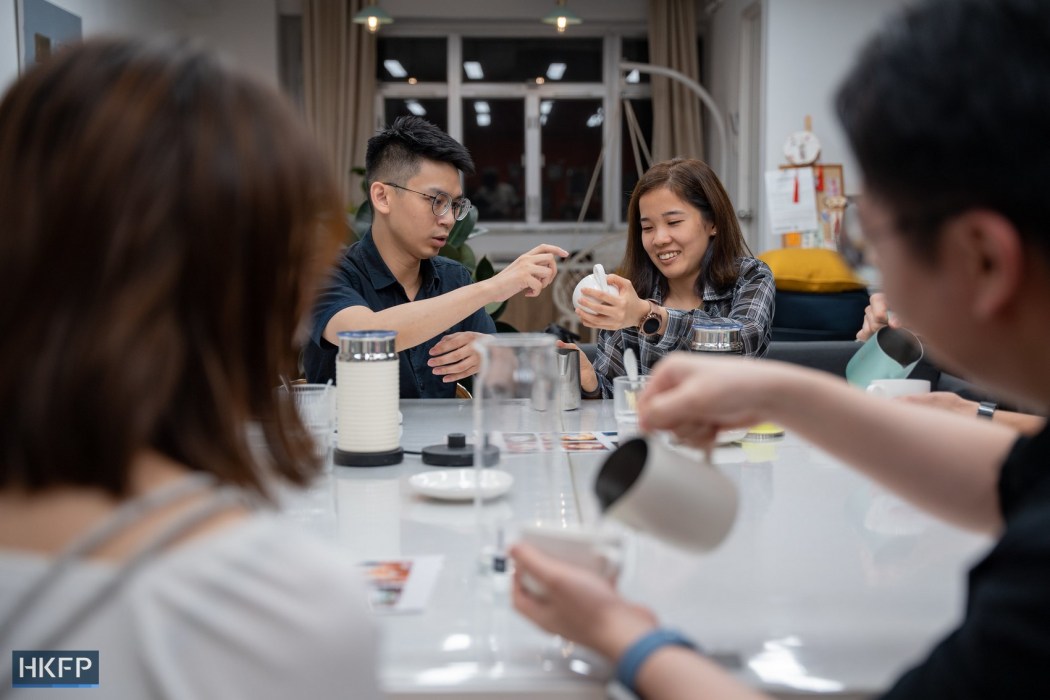
Many said they had used dating apps such as Tinder and Bumble before, but found it difficult to foster connections online. They were also wary of scammers who lurk on the apps.
“I think it can be quite tiring to use dating apps. Each time you meet a new person, you have to reintroduce yourself,” Athena, 28, who works in marketing, said in Cantonese.
Francis Hung, an insurance agent who also joined the latte art class, said he once got to know a woman who later turned out to be peddling a pyramid scheme.
“If they’re not [selling] a course, it’s some beauty product,” the 29-year-old said in Cantonese.
Realistic expectations
For all that demand, participants’ reviews of the city’s matchmaking classes have been mixed. After all, they are businesses in an increasingly crowded market, and the quality of their services naturally varies.

Phoebe, who also joined the latte class, said her experience at a yoga-themed matchmaking class in January had been “quite bad.” The yoga instructors who doubled as hosts did not do a good job easing conversation and the atmosphere was awkward, she added.
The 30-year-old company secretary said she paid around HK$800 for the class. “I didn’t think it was worth it at all,” she said. “I felt like they were using matchmaking as a gimmick, and just trying to make money.”
Athena said she believed one reason for the proliferation of these activities was the low barrier to entry. Instructors already offering interest classes can simply put a “matchmaking” label on their lessons and target a wider audience, she said.
HKFP caught up with the participants two weeks after the latte art class. They said they enjoyed the activity and thought everybody was friendly. Some had chatted with the others on Instagram, while Phoebe said she was asked out – but did not quite think the men were her type.
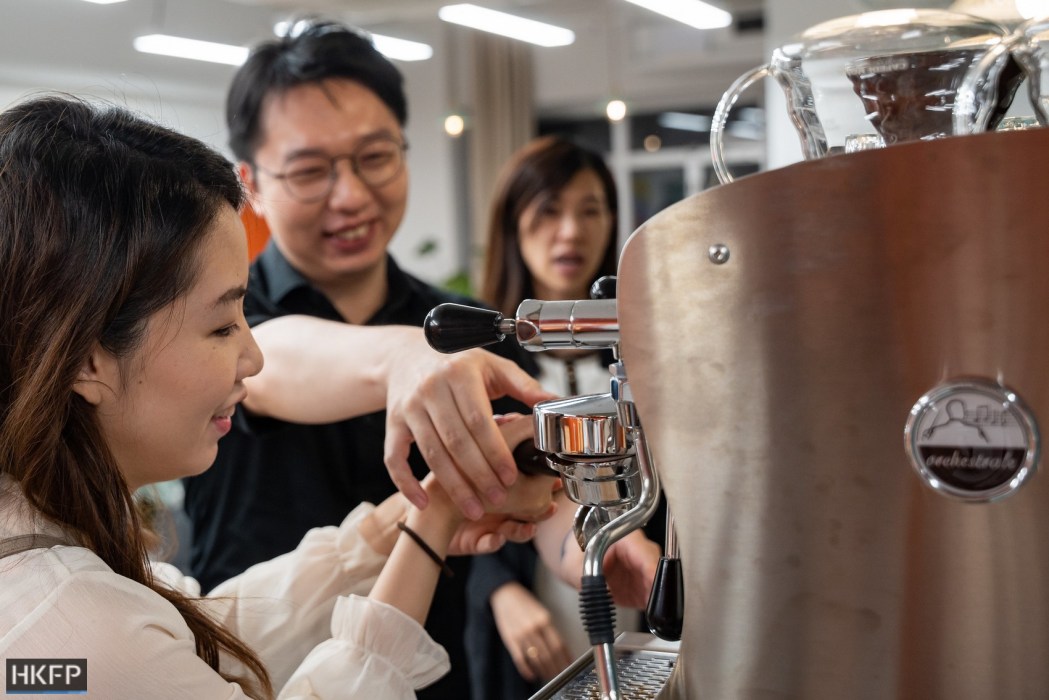
Hung said he was not disappointed with the event, despite not meeting anyone. While he thought these matchmaking activities were a viable alternative to online dating, it was difficult to really get to know somebody in a two-hour window.
His expectations were realistic, he told HKFP, adding that he was happy to go with the flow and let things happen when they did.
“For me, it’s more about having a good time in the moment and trying a new experience. If I find… a girlfriend, then that’s a bonus,” he said. “I think that’s a better mindset to have.”
Support HKFP | Policies & Ethics | Error/typo? | Contact Us | Newsletter | Transparency & Annual Report | Apps
Help safeguard press freedom & keep HKFP free for all readers by supporting our team

Original reporting on HKFP is backed by our monthly contributors.
Almost 1,000 monthly donors make HKFP possible. Each contributes an average of HK$200/month to support our award-winning original reporting, keeping the city’s only independent English-language outlet free-to-access for all. Three reasons to join us:
- 🔎 Transparent & efficient: As a non-profit, we are externally audited each year, publishing our income/outgoings annually, as the city’s most transparent news outlet.
- 🔒 Accurate & accountable: Our reporting is governed by a comprehensive Ethics Code. We are 100% independent, and not answerable to any tycoon, mainland owners or shareholders. Check out our latest Annual Report, and help support press freedom.
- 💰 It’s fast, secure & easy: We accept most payment methods – cancel anytime, and receive a free tote bag and pen if you contribute HK$150/month or more.
MORE Original Reporting
HKFP has an impartial stance, transparent funding, and balanced coverage guided by an Ethics Code and Corrections Policy.
Support press freedom & help us surpass 1,000 monthly Patrons: 100% independent, governed by an ethics code & not-for-profit.






